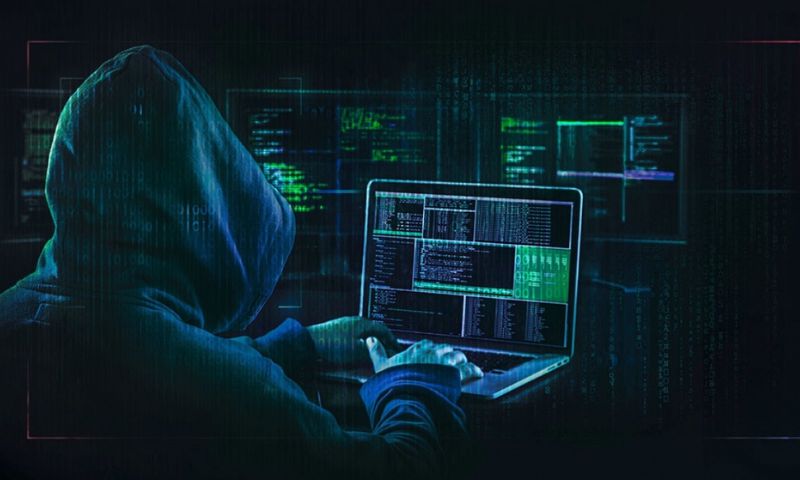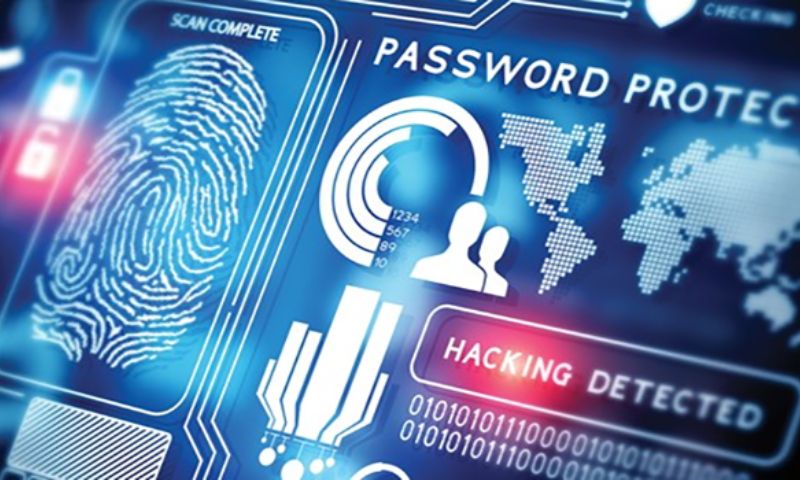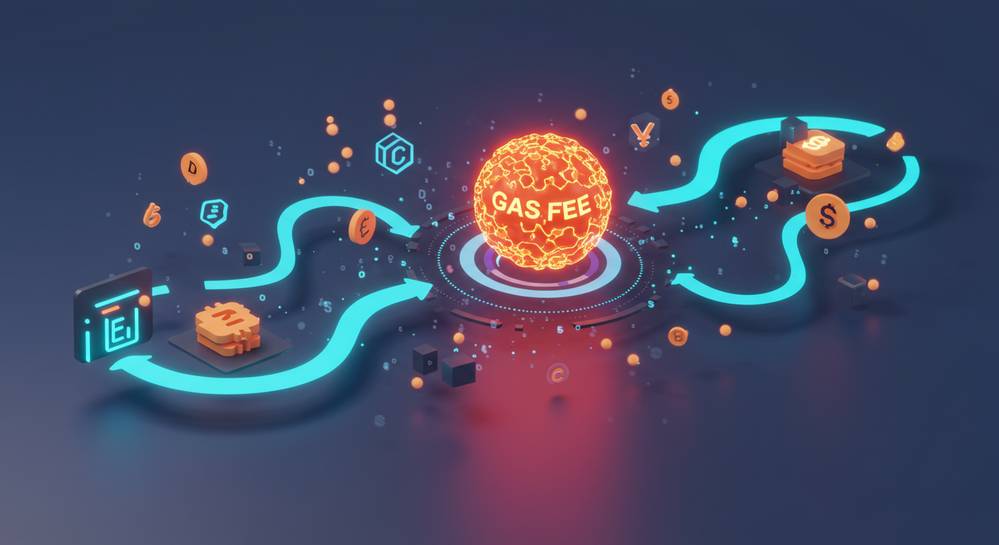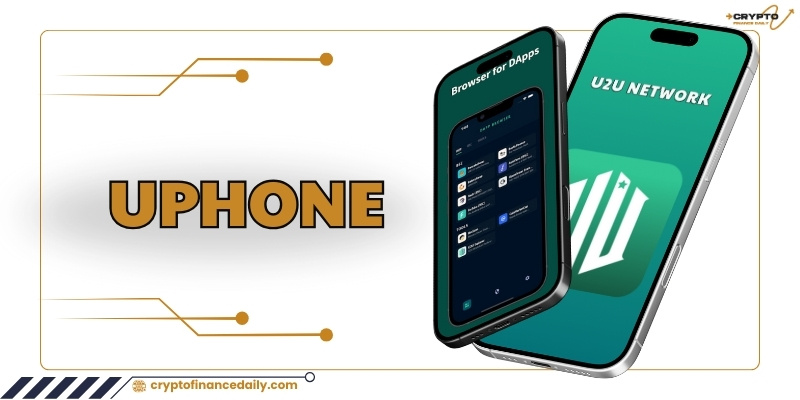In the world of digital currency, your hard-earned money deserves top-notch protection. Crypto Security Solutions offer you just that, so you can rest easy. The net is full of sneaky cyber thieves. They’re after your coins. That’s why I’m here to arm you with the best shields and swords. Join me, as we dive into the art of keeping your crypto safe and sound. Let’s stop those bandits in their tracks.
Understanding the Landscape of Crypto Security
The Importance of Secure Cryptocurrency Storage
Secure cryptocurrency storage is vital. Hackers are always looking to steal digital wealth. When you own crypto, you’re your own bank. This means you must keep your digital money safe, just like a bank would.
Storing crypto securely stops thieves cold. Just like you wouldn’t leave your house keys out, you don’t want your digital keys stolen. These keys open the lock to your crypto. Lose them, and your crypto might be gone for good. To keep them safe, you must understand and use the best storage methods.
One top way to store your crypto is using a hardware wallet. These are physical devices that hold your crypto offline. Offline means away from the internet and hackers. They are super safe because they’re only connected when you need to use your crypto.
Another method is what we call cold storage options. This is where you store your digital money offline, like on a USB drive or a paper wallet. It’s not connected to the internet, which means hackers can’t get it. But you must be careful not to lose or damage them, or again, your crypto might be lost.
The Evolution of Blockchain Protection Strategies
Blockchain protection strategies keep getting better. They started simple but are now complex to stop smarter thieves. Early blockchain tech had some holes that smart hackers could sneak through. Now, with new updates, these holes are getting patched.
Encryption techniques have improved a lot. Encryption scrambles your data so only someone with the key can read it. Think of it like a secret code that only you and trusted folks can crack.
Blockchain now uses decentralized security measures, meaning control is spread out. It’s not just one computer or person in charge. This is like having many locks on a door instead of just one. It makes it much harder for hackers.
Strong passwords are a must for crypto, too. They’re like a tough-to-break lock on your digital vault. Two-factor authentication adds another layer, like a second door to get through before reaching your precious coins.
Private key management is another important part. Keys are like passwords for your wallet. If you protect them well, your crypto stays safe. But if someone else gets them, they can take everything.
In the end, the most important thing is to stay smart and safe. There are lots of ways to protect your crypto, and they’re always getting better. Using these tools, you can shield your digital wealth from cyber bandits and rest easy knowing your investments are secure.

Implementing Robust Defenses for Digital Assets
Harnessing Hardware Wallet Benefits and Private Key Management
Think of a hardware wallet like a safe for your digital money. It keeps your crypto locked away and off the internet. This is what we call cold storage. Using cold storage options is one of the best practices in crypto security. A hardware wallet stores your private keys, kind of like secret passwords, in a physical device. This is much safer than online, where hackers could get to them.
When you use a hardware wallet, you control your digital wealth. It ensures that only you can access and sign off on transactions. This is what we mean by non-custodial security. You don’t need to trust a third party to keep your crypto safe. Plus, these devices are designed to be immune to computer viruses and hacking attempts.
But remember, while hardware wallets offer huge benefits, they can’t solve everything. To keep your assets secure, you also need to manage your private keys correctly. This means keeping the keys secret and making backup copies, also stored safely. And never, ever share your recovery phrase. Think of it as the master key to your digital treasure chest.
Multi-Factor Authentication and Anti-Phishing Protocols in Crypto
When it comes to securing digital assets, you want many layers of protection. This is where multi-factor authentication (MFA) comes in. You’ve probably used this before. You log in with a password, and then the system asks for more proof. It could be a code from your phone or even your fingerprint.
MFA is great for blockchain protection strategies. It adds extra steps that make it hard for cyber bandits to break in. Always use strong passwords for crypto and change them regularly. But even with a strong password, adding MFA is like putting a second lock on your door.
We also need to talk about anti-phishing protocols. Phishing is when sneaky scammers try to trick you into giving them your private info. But don’t worry, some smart tools and rules can help you steer clear of these traps. For instance, always double-check the web address of your crypto exchange or wallet. Look for small signs that it’s the real site and not a fake one trying to steal your info.
And never click on links or download files from unknown emails or messages. These can be phishing attempts. Most secure trading platforms and wallets will not ask for your private information via email. So, if you get a weird message, it’s best to ignore it.
Staying safe in the crypto world means using all the tools and smarts you’ve got. Use hardware wallets, manage your private keys like the precious secrets they are, and don’t skip on stuff like MFA and being on the lookout for phishing. With these steps, you’ll turn your crypto fortress into a place even the craftiest cyber bandit can’t touch.
Advancements in Cryptography and User Security
Exploring Biometric and Quantum-Resistant Cryptography Solutions
The world of crypto moves fast. We must keep up. Imagine a lock that only opens with your fingerprint. That’s what biometric solutions do for crypto. They use your unique traits to protect your digital wealth. This adds a tough layer to your blockchain protection strategies. Your fingerprint, your eyes—can’t be copied. That means securing digital assets just got more personal.
Now let’s talk quantum-resistant cryptography. Sounds like science fiction, right? But it’s real and it’s here to help us. Quantum computers are powerful. They could break common codes. But quantum-resistant encryption stays a step ahead. It’s like building a safe that no drill can open—yet. We work on securing crypto transactions with this. The goal is to make it so strong, not even future tech can crack it.
Smart Contract Safeguarding and Security Audits
Smart contracts are the robots of the blockchain world.
They do business for us, no human needed. But just like robots, they need good instructions. A small mistake can mean big trouble. That’s why we need smart contract safeguarding.
Think of it like a safety check for a plane before takeoff. A security audit does this for smart contracts. We check each line, making sure it’s solid. Then we fix what’s not. It keeps your deals safe and sound. This is part of the best practices in crypto security. It’s a must-have in your digital defense plan. It’s like a guard watching over your contracts day and night.
Hardware wallet benefits also come in here. They hold and sign off on your transactions. But offline – away from hackers. It’s like keeping your gold in a vault with guards and away from thieves. Private key management is crucial here. You hold the keys to your vault, and only you.
We’ve got work to do. Let’s make sure our digital wealth is safe. With strong passwords, using unique and tricky ones, and combining them with other methods like two-factor authentication, we build a wall that’s hard to climb. This is securing our future in the crypto world, keeping cyber bandits at bay.

Staying Ahead of the Curve with Continuous Education
Best Practices in Crypto Security and User Education on Risks
We know crypto can be a wild ride. Think of it like going on a treasure hunt. You find a chest of digital gold coins. Now, how do you keep these coins safe from cyber thieves? Easy! First, we’ve got to learn some top tips for keeping our crypto secure. That means knowing your stuff.
What’s the deal with strong passwords for crypto? The deal is they’re like a solid lock on your treasure chest. Use a mix of letters, numbers, and symbols. Make it trickier for those pesky cyber bandits to crack. And remember, never share them. Even with folks who seem nice.
There’s more though. Ever heard of two-factor authentication? It’s a must! That’s like adding an extra lock to your chest. Now, if someone gets your key (or password), they still can’t open it. Because they’ll need the secret code from your phone too. It’s double trouble for hackers!
What about securing crypto wallets? Oh boy, that’s big. Think of wallets like your personal safe. Some are “custodial,” where the service keeps your key. That’s easier but riskier. Then, there are “non-custodial” ones, which let you keep the key. They’re safer, but you must be careful with that key.
Now, have you heard about cold storage options? It’s like burying your treasure. You put your crypto on a device that’s not online. That way, hackers can’t touch it. Smart move, right?
But let’s not forget about learning the risks. You need to know the kind of sneaky tricks out there, like “phishing.” That’s when thieves send fake messages to steal your info. Stay sharp, friend. Don’t click on weird links, and keep an eye out for odd emails or messages.
Regulatory Compliance and the Role of Continuous Vulnerability Assessments
Staying safe in the pirate-infested waters of crypto isn’t just about a strong box and a good map. It’s also about knowing the rules of the sea. And those rules change, so listen up.
When we talk about regulatory compliance in crypto, what’s that mean? Think of it as following the sea laws that keep everyone’s boats and treasure safe. Governments set these laws to stop illegal stuff like money laundering. Crypto exchanges follow these rules to keep bad guys away and make sure we’re all fair and square.
But it’s not just about rules. We also need regular checks to find weak spots in our defenses. This is where vulnerability assessments for crypto come in. Imagine checking your ship for leaks. If you find and patch them before setting sail, you won’t sink. That’s what these checks do for your crypto’s safety.
These assessments spot the chinks in our digital armor. They can be about the tech stuff, like how the blockchain is built, or the human side, like staff training. It’s smart to check everything often so we can keep our treasure secure.
And we can’t just set it and forget it — no sir. We have to keep learning. Hackers get smarter every day. So we gotta be like the captains of our own crypto ships, staying sharp and steering clear of trouble. That means always learning, always patching holes, and always being ready for whatever comes our way on the high digital seas.
In this post, we talked about keeping your digital coins safe. We looked at how important it is to store them right and how blockchain protection has gotten better over time. Then, we checked out strong ways to guard your crypto, like using special hardware wallets and keeping your private keys safe. We also saw how extra steps like multi-factor authentication and being smart about phishing can help a ton.
Next up, we dove into the latest tech in cryptography that keeps your stuff secure, thinking about things like fingerprint scanning and even tech that can fight off future quantum threats. Plus, we learned how smart contracts can stay safe and why security audits matter so much.
Lastly, we can’t forget to keep learning all the time. Knowing the best ways to stay secure and understanding the risks can save you a headache. Plus, it’s crucial to follow the rules and keep checking for weaknesses. So stay sharp, keep your crypto safe, and always stay one step ahead of the tricky stuff out there!
Q&A :
What are the best practices for ensuring security when dealing with cryptocurrencies?
Implementing strong security measures is crucial when managing cryptocurrencies. Best practices include:
- Utilizing two-factor authentication (2FA) for all crypto-related accounts and wallets.
- Employing hardware wallets to store cryptocurrencies, as they provide offline storage and reduce the risk of hacking.
- Keeping software updated to the latest versions, including wallet software and any other related applications.
- Staying informed about the latest security threats and scams in the crypto space.
- Never sharing private keys or seed phrases with anyone, and keeping them stored securely and separately from wallet addresses.
By following these guidelines, individuals and organizations can significantly enhance the security of their cryptocurrency holdings.
How do I choose a secure crypto wallet?
Choosing the right crypto wallet is essential for keeping your digital assets safe. Here are several factors to consider:
- Type of Wallet: Decide between hardware, software, and paper wallets. Hardware wallets are generally considered the most secure.
- Reputation: Research the wallet’s reputation and read user reviews for insight into reliability and security features.
- Security Features: Look for wallets with robust security features such as 2FA, multi-signature transactions, and secure backup options.
- User Interface: The wallet should have a user-friendly interface that doesn’t compromise on security.
- Compatibility: Ensure the wallet supports the cryptocurrencies you intend to use and is compatible with your operating system.
- Customer Support: Prompt and helpful customer support can be vital if you encounter any issues.
Prioritizing security over convenience often results in a safer experience when handling cryptocurrencies.
Can blockchain technology enhance the security of cryptocurrencies?
Yes, blockchain technology is inherently designed to enhance security:
- Decentralization: By spreading its operations across a network of computers, blockchain mitigates the risk of centralized points of failure.
- Cryptography: Blockchain utilizes cryptographic techniques to secure the data of each transaction, making tampering extremely challenging.
- Immutability: Once data is entered into the blockchain, it’s virtually impossible to alter without consensus across the network, securing historical transactions.
- Transparency: The transparent nature of blockchain can deter fraudulent activity, as transactions are open for verification by anyone on the network.
These properties help make blockchain an effective technology for securing cryptocurrency transactions and holdings.
What should I look for in a crypto security solution provider?
When evaluating a crypto security solution provider, consider these factors:
- Expertise and Experience: The provider should have a proven track record and experience in the field of crypto security.
- Range of Services: Comprehensive services that cover different aspects of security like key management, transaction monitoring, and incident response are vital.
- Compliance and Certifications: Check for compliance with relevant standards and industry certifications that demonstrate a commitment to security best practices.
- Client Testimonials: Look into feedback from current or previous clients to gauge the provider’s reliability and quality of service.
- Support and Maintenance: Ensure the provider offers continuous support and regular updates to address the evolving security landscape.
A thorough vetting process will help you select a provider that aligns with your security needs.
What are the common security threats to cryptocurrency investments?
Cryptocurrency investments are vulnerable to several security threats:
- Phishing Attacks: Scammers tricking individuals into providing sensitive information, such as wallet keys or login credentials.
- Malware: Software designed to infiltrate or damage a computer system, often aimed at stealing cryptocurrencies.
- Exchange Outages: Centralized exchanges can be targets for attacks or may suffer outages, leading to potential losses.
- Wallet Theft: Physical or digital theft of a crypto wallet can result in losing all contained currencies.
- Ponzi Schemes: Fraudulent investment operations where returns for earlier investors are paid from new investors’ capitals.
Staying vigilant and informed can help you protect your investments from these common threats.




